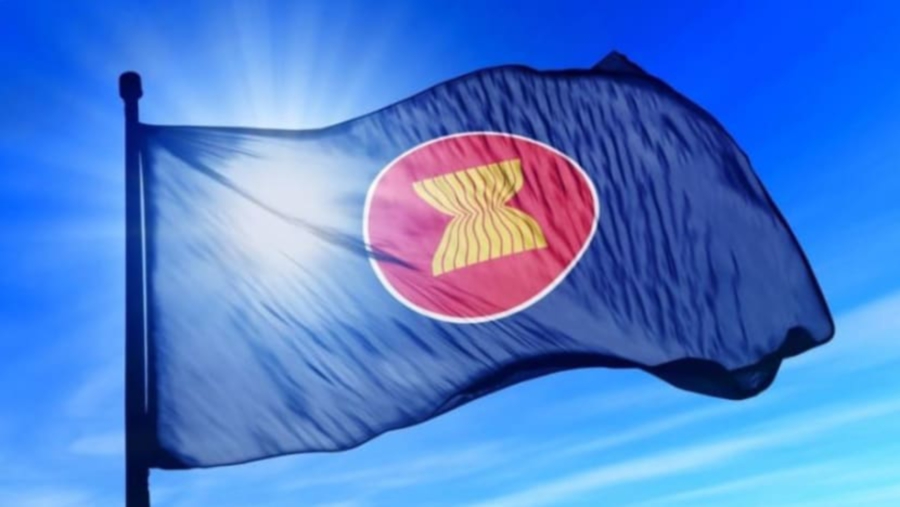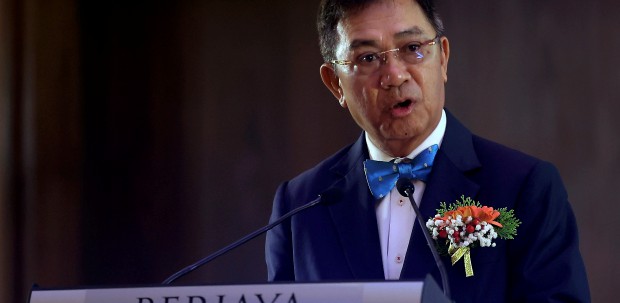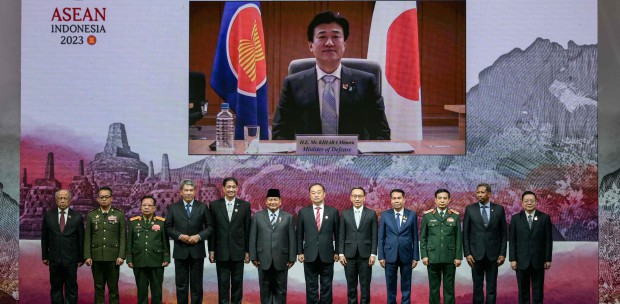LAST week, European politics was in full gear with a special European Council Summit (the EU body where all the heads of governments sit) that was focused on illegal immigration and the Ukraine conflict triggered by Russia.
The intensive discussions also saw a spat between Prime Minister Giorgia Meloni of Italy and President Emmanuel Macron of France over the latter's last-minute dinner invitation to President Volodymyr Zelenskyy of Ukraine. A dinner to whom only the German Chancellor, Olaf Scholz, was invited.
The Italian prime minister was irked by the fact that she was excluded and used the occasion to criticise the lack of team work, in what she described as "I think our strength in this fight is unity".
Note that her predecessor in Rome, Mario Draghi, had created an unprecedented new sense of respectability and trust among the EU on the role of Italy, often snubbed by its peers for a lack of political stability.
We should not forget that Paris and Berlin have always been the "de facto" engines of the process of European integration and only an indisputable statesman like Draghi could elevate Italy to an unprecedented level of recognition and respect, within and outside Europe.
Also the former Italian prime minister was the one who travelled by train with Macron and Scholz in June last year to visit Zelenskyy in what was heralded as an historic and symbolic visit.
Going back to the spat between Meloni and her French and German peers, it is true that Macron could have invited the Italian prime minister for the special dinner at the Elysée but it is also true that he could have invited the remaining 24 leaders of the 27 members in the EU.
Like Chancellor's Scholz visit to Beijing last November, which had irritated Macron and all the leaders of the EU institutions based in Brussels, the dinner with Zelenskyy in Paris showed the power of the capitals in running the key files of the EU.
The less damaging and more inclusive dinner in Paris would have been Macron inviting, along with Scholz, the leaders of the EU institutions, including the Parliament and the prime minister of Sweden whose country now heads the presidency of the EU up to July 2023.
It is not that the European Commission, its executive branch, lacks power or visibility. For example, its President Ursula von der Leyen has been active on the global stage and certainly commands such a visibility and recognition that she is a household name within all the citizens of the EU.
Yet, no matter certain federal elements being in place (for example, trade, the Euro, budget policies), the EU is still a union of nations and prime ministers and presidents, together with their foreign ministers, have full autonomy to run their own shows.
If only more attention were given to matters of foreign policy and defence, then the EU could progressively turn itself into a real confederation. However, for that to happen, key areas of national sovereignty would be significantly eroded. I have no doubt that, though later rather than sooner, this will be the only viable option for the old continent to thrive and compete with other global powers.
In this regard, what are the lessons for Southeast Asia or Asean from the dynamics unfolding in Europe?
Perhaps the region has the opposite problem. Asean needs a couple or a trio of countries which are able to push regional cooperation to new heights in the same way Germany and France have been doing since the foundation of the European integration project in 1957 with the Treaty of Rome.
Let's not forget that in Southeast Asia, integration and cooperation are not interchangeable words but the latter could open the doors to the former. So far, the Asean process has been dominated by the concept of cooperation rather than integration with the capitals dictating the priorities and areas of common work, which are not even remotely close to wear down the nations ' sovereign powers.
The issue is that Southeast Asia's geographical position and its connectivity between oceans and bridges among different civilisations and cultures alone won't be enough in the medium and long term to guarantee the bloc's relevance in global affairs.
Unless Asean takes some progressive and bold steps towards integration, then the bloc and its members will lose its appeal among those nations willing to invest their political and financial capital in the region.
I wish Asean would deal with the situation in which one of its head of governments had lamented about being excluded from a dinner with a key interlocutor.
That would show a strong interest in the process of integration in the region, an healthy competition among capitals like what is happening in Europe, to push the envelope forward and finally swap dry cooperation with farsighted and passionate integration.
The author writes on civic engagement, youth development, the SDGs, human rights and regional integration in the context of Asia Pacific






